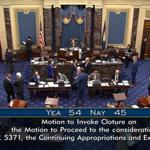The Burlingame City Council has begun forming regulations for future developments expected in the city following the passage of a new state law requiring local governments to approve denser residential housing.
Senate Bill 9, signed in September, will take effect at the beginning of next year. The law largely does away with zoning rules that have limited the vast majority of residential lots in the city to single-family homes only. Property owners will now be allowed to build up to four units by dividing their lots into two and building duplexes on each half.
The law has been a point of contention, with opponents — including the Burlingame City Council along with many others in the county — arguing the rule unjustly strips jurisdictions of their land use control. Proponents, meanwhile, contend such legislation is needed to tackle the state’s skyrocketing housing costs.
“It passed, and we just have to make the best of it,” Vice Mayor Ricardo Ortiz said. “So what we need to do is work with whatever tools we have remaining to limit the impact on the neighboring properties.”
The council expressed the need to implement objective design standards, things that could include prohibiting certain amounts of pavement or building coverage on lots, off-street parking requirements and regulating how close structures can be built to property lines.
“Our thesis that we are moving forward with is to replicate the massing standards of the single-family homes,” Community Development Department Director Kevin Gardiner said. “The intent is to retain that house-scale of neighborhoods.”
Though SB 9’s main provisions cannot be avoided, there are still elements of its application left up to the city.
“What we don’t want is to leave that discretion as an open menu on Jan. 1 where an applicant can come in and basically make the rules themselves,” Gardiner said. “We would prefer to have rules in place that we feel the community can live with.”
SB 9, for instance, could allow for lot splits with duplexes to also get accessory dwelling units, allowing six units to replace a single-family home. The city can enact regulation to bar ADUs where lot splits have occurred, something the council signaled it would likely do.
Rules around parking, a key concern for some councilmembers, leave slightly less wiggle room. The law prohibits cities from requiring parking if the project is within a half mile of “high quality” transit. For the Peninsula, the El Camino Real bus line fits those criteria, as do BART and Caltrain stations. That means projects in nearly all of Burlingame, save for the most southwestern portion, would not require parking.
“To say that people are not going to have cars within a half mile, to me is ludicrous,” Mayor Ann O’Brien Keighran said. “I am very very worried about parking.”
Keighran suggested banning overnight street parking, citing safety concerns related to emergency vehicle access. She further expressed interest in prohibiting off-street parking in front of residences where a front lawn would typically go.
Gardiner said a ban on parking in front yard areas could likely be included in design standards, but additional research would be needed on the feasibility of an overnight parking ban. He did note such a measure “could compel somebody to build parking.”
In response to questions regarding whether new developments would be subject to special fees to cover things like schools and other infrastructure increased housing could require, Gardiner said developments would be subject only to standard impact fees and an additional fee would require a nexus study to determine a need.
Modifying height limits was also discussed. Councilmember Michael Brownrigg said he would be open to allowing taller structures if it produced design features that were “better for pedestrians and better for neighbors” like setbacks and open space. Ortiz echoed he would be open to a similar compromise.
“I’m really concerned that our design standards that we come up with don’t lead to a paving over of the lot,” Brownrigg said. “Young people don’t think about that so much, but trust me most older people like having a little bit of a garden to putter around in.”
Excessive paving could have environmental concerns, particularly to do with water conservation, Councilmember Donna Colson pointed out.
Recommended for you
Exemptions
SB 9 includes many exemptions, among them, the city will not be required to approve lot splits if they are adjacent to a lot previously divided under the law. Each new lot resulting in a split must be at least 40% of the size of the original lot and at least 1,200 square feet. Lots within historic districts or environmentally sensitive areas will be exempt.
Additionally, property owners will be required to live on the property for at least three years from the time of submitting an application.
According to a study from the Terner Center for Housing Innovation at the University of California, Berkeley, just 410,000 of the state’s 7.5 million single-family parcels will be physically able or financially feasible for splitting or upzoning given the stipulations.
It’s unclear how many new housing units would be produced locally.
“It’s untested, frankly, so we don’t know how many units may come from it,” Gardiner said.
Community input
Despite the uncertainty, some residents fear the legislation will have far-reaching negative impacts.
“What the state has done to us as property owners here in Burlingame and maybe throughout the state … I think it’s just terrible,” Burlingame resident Jim Briggs said. “We have parking problems already, we have traffic problems already.”
Briggs raised further concern regarding noise levels, trash and increased crime.
“With all the open land and all the properties that are out there, that they have to come to us and take charge of our properties … I’m concerned,” Briggs said. “Developers will come in … they’re going to build ‘em and then they’re going to move out and we’re going to be left with all that’s come from what they have done to us.”
Others were more optimistic. Mike Dunham, a former Burlingame City Council candidate who now lives in Redwood City encouraged councilmembers to consider why every state legislator representing the Peninsula voted in favor of the bill.
“Time will show that this was the right move for California,” Dunham said. “Very few cities on the Peninsula have shown any interest in fighting the fight to desegregate their most exclusionary neighborhoods.”
Dunham referenced the $2.67 million average home price according to Zillow, and noted that duplexes can look just like single-family homes.
“When all is said and done, Burlingame is not going to look that different,” he said. “It’s all going to be fine.”
(650) 344-5200, ext. 105































(1) comment
property owners have to live in the units is not 100% accurate. It is the applicant that is required to sign an affidavit. An important distinction.
Welcome to the discussion.
Log In
Keep the discussion civilized. Absolutely NO personal attacks or insults directed toward writers, nor others who make comments.
Keep it clean. Please avoid obscene, vulgar, lewd, racist or sexually-oriented language.
Don't threaten. Threats of harming another person will not be tolerated.
Be truthful. Don't knowingly lie about anyone or anything.
Be proactive. Use the 'Report' link on each comment to let us know of abusive posts.
PLEASE TURN OFF YOUR CAPS LOCK.
Anyone violating these rules will be issued a warning. After the warning, comment privileges can be revoked.